10 Wild and Crazy Facts About Jumping Spiders
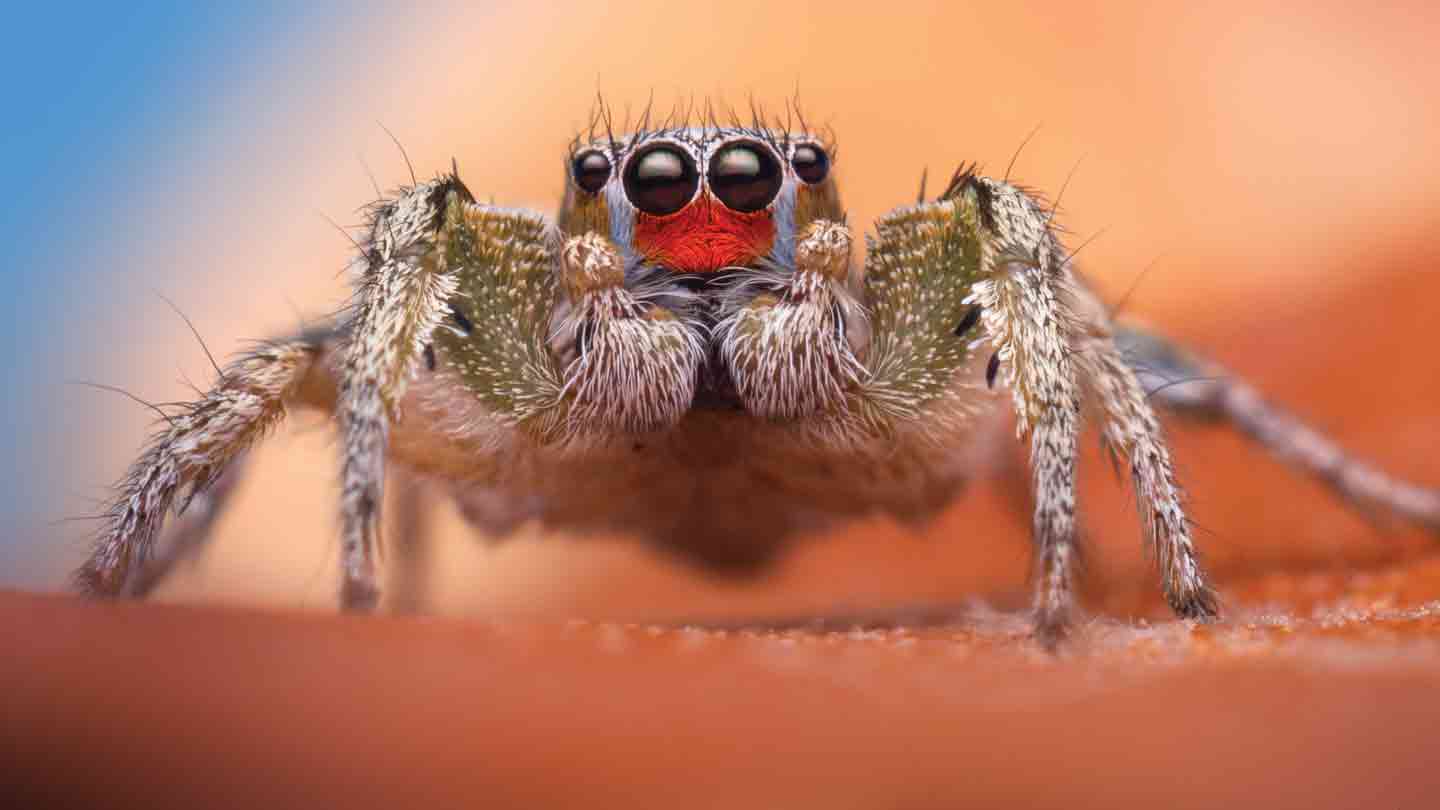
Jumping spiders’ remarkable senses capture a world beyond our
Compared with larger arachnids, jumping spiders need to eat much more often - ideally two to three times a week. An adult jumping spider could die if it had to go more than a month without food. This is in sharp contrast to some tarantulas which could survive over a year. ← Previous Post. Next Post →.
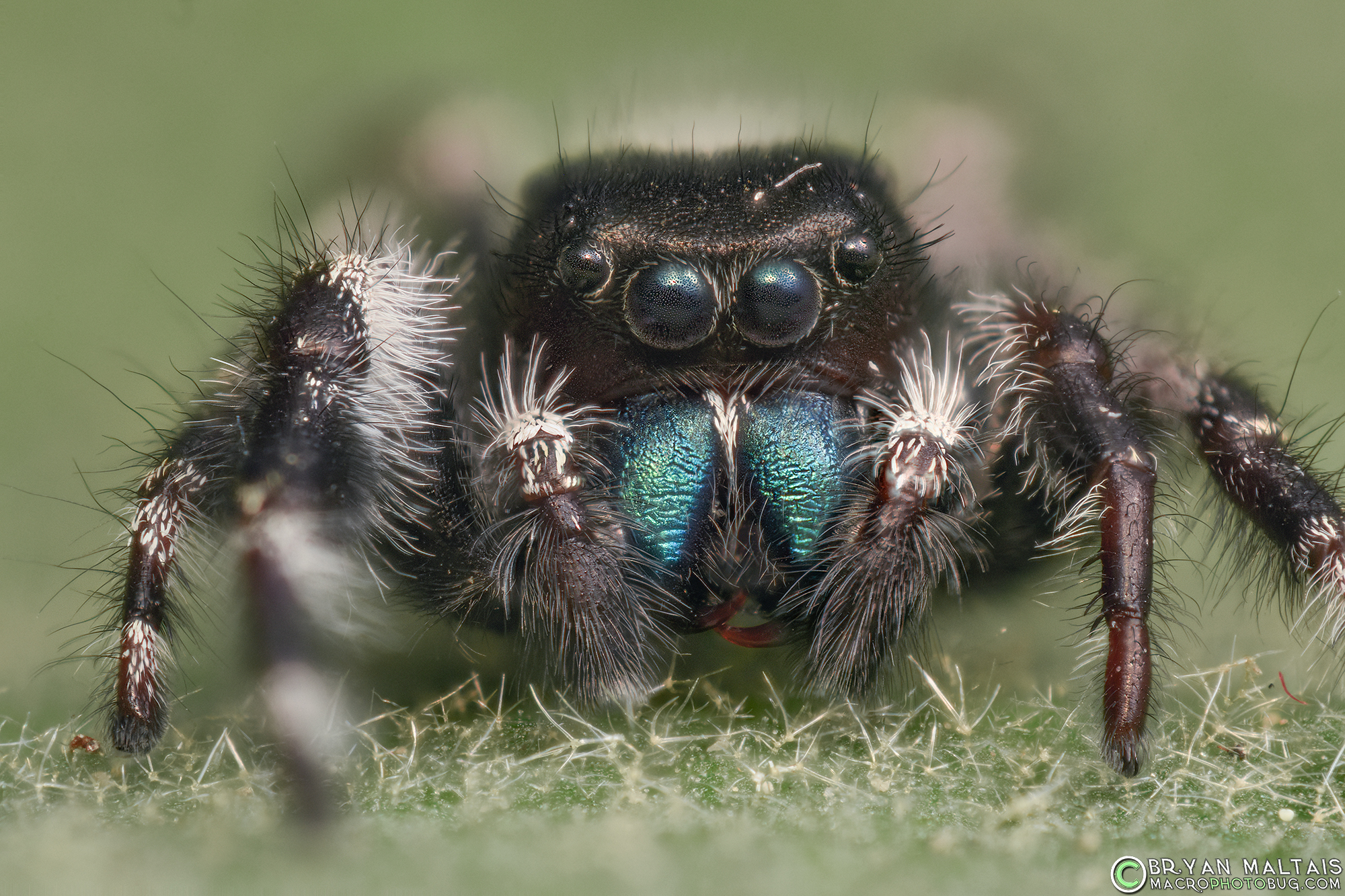
Bold Jumping Spider Macro Photos
The thing is, a spider has two guts. The first is the foregut and the second is the hindgut. The foregut stores food. For this reason, the digestive process may take up to three weeks. This is the primary reason spiders can live without food for a month or two. Do Spiders Store Food In Their Webs?
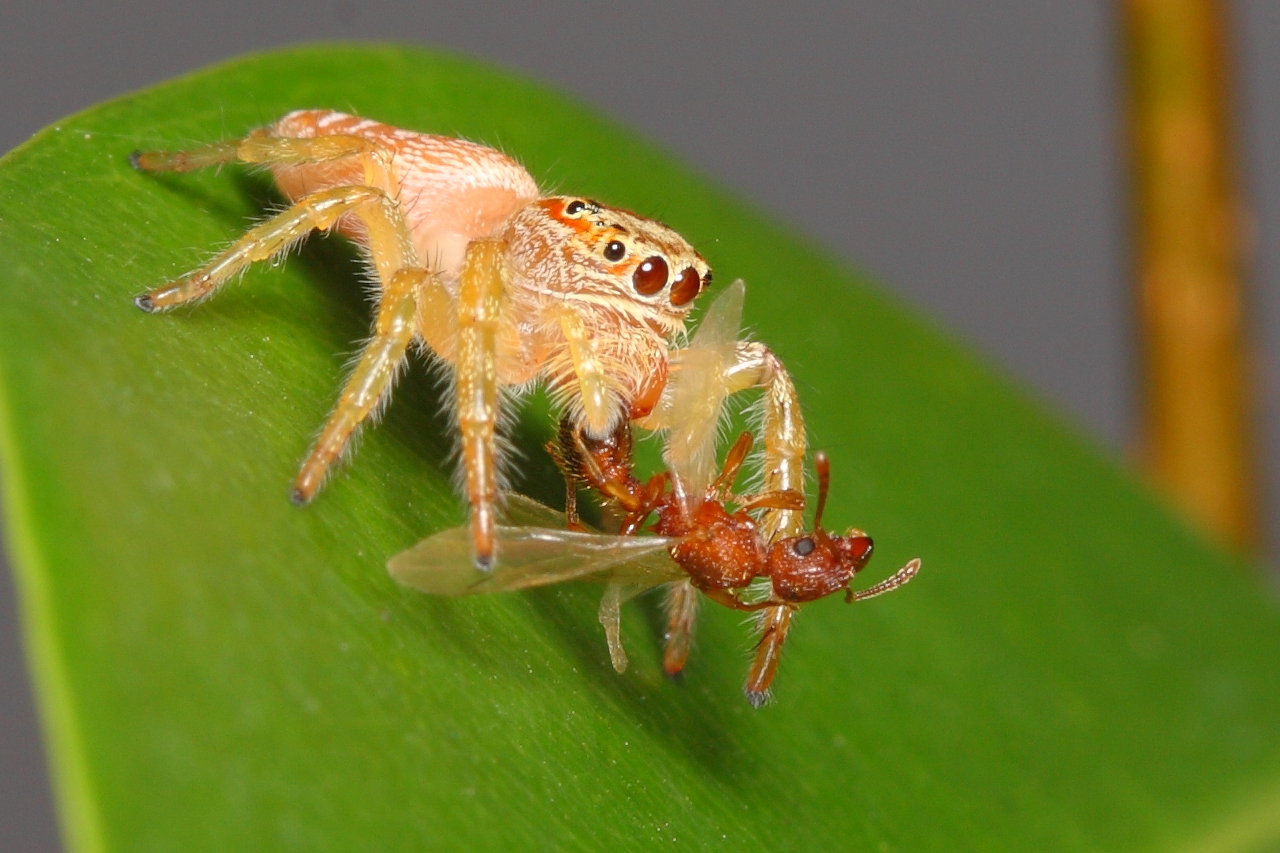
jumping spider eating lunch by troypiggo on DeviantArt
A typical spider can survive without food for 4-8 weeks, but only around three weeks without water. This indicates that spiders can survive without food for longer than they can without water in a variety of habitats. Wolf spiders that have reached adulthood can survive without food for more than three weeks, but in times when prey is rare.

Jumping Spiders Interesting Thing of the Day
The spiders can also eat fish, thrips, green tree ants, silverfish, wasps, springtails, wax worms, woodlice, worms, and spider mites. Jumping spiders are able to consume plants, since certain species of jumping spiders do take nectar from plants. These spiders may eat some plants, but since they are carnivores, they prefer to devour tiny.
/__opt__aboutcom__coeus__resources__content_migration__mnn__images__2016__05__peacockspidermaratusbubo-141ed950408740eeaffb579db44fcec4.jpg)
10 Wild and Crazy Facts About Jumping Spiders
Venom can also be used for producing drugs. Spiders have evolved to be very hardy. Their slow metabolism and their ability to store food mean they are able to live for months, sometimes even years, without eating. This is in contrast to animals with a high metabolism, which are often short-lived and will die within a few months of their last.

9 Facts About Jumping Spiders That Will Amaze You Brightly
An average spider may only last 4-8 weeks without food, and about 3 weeks without water; meaning spiders can go longer without food than they can without water.. Related: Spiders with Long legs. Jumping Spider. Adult jumping spiders are known to last about a month without the presence of food, but not longer than a week without water.
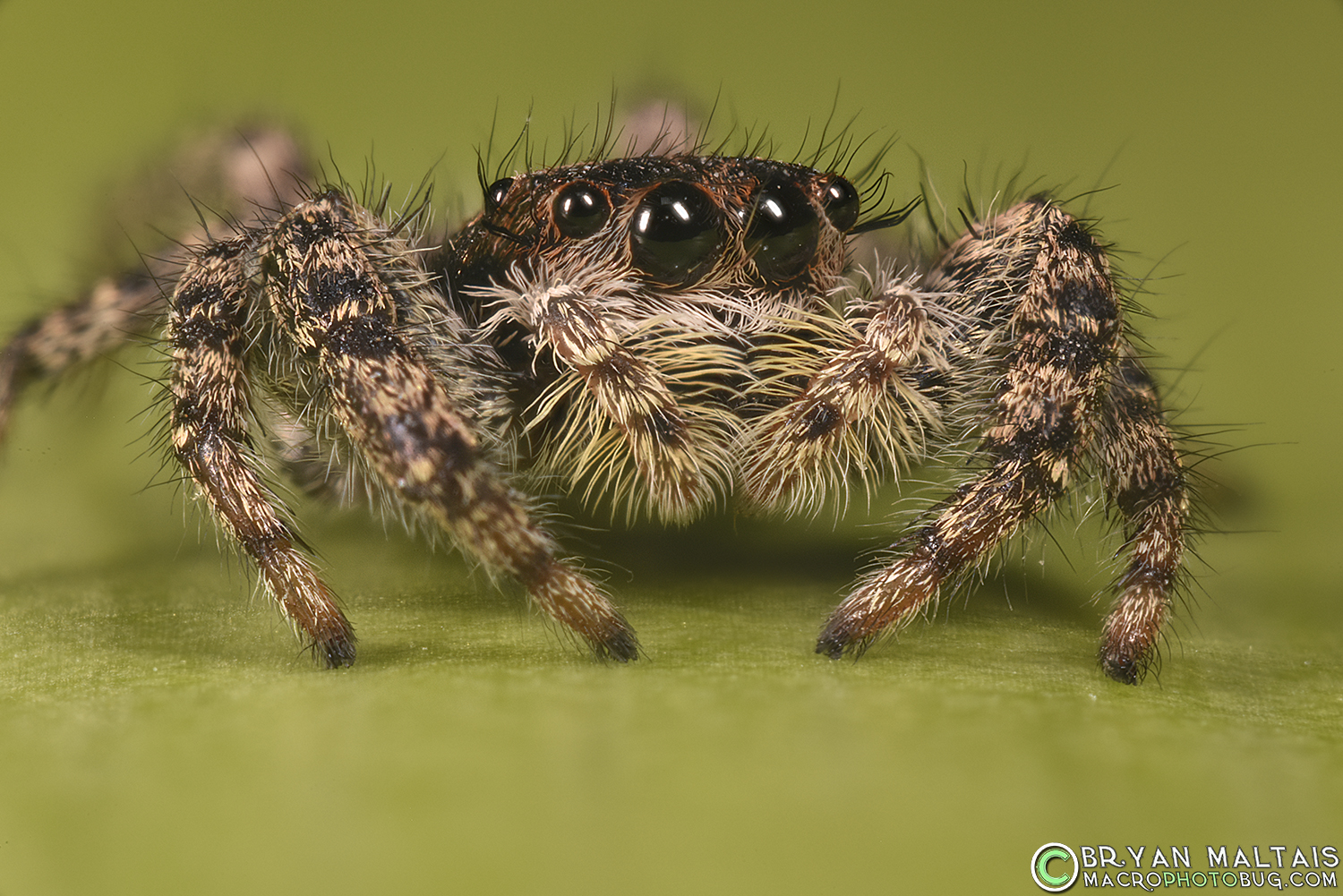
Jumping Spider in House
Question: How often does a jumping spider shed its skin in the course of its life? Answer: The number of moults a jumping spider goes through in its lifetime varies and cannot be determined across the board. Male jumping spiders generally need 1 to 2 moults less for sexual maturity than their female conspecifics. It happens that female jumping spiders of the same species become sexually mature.
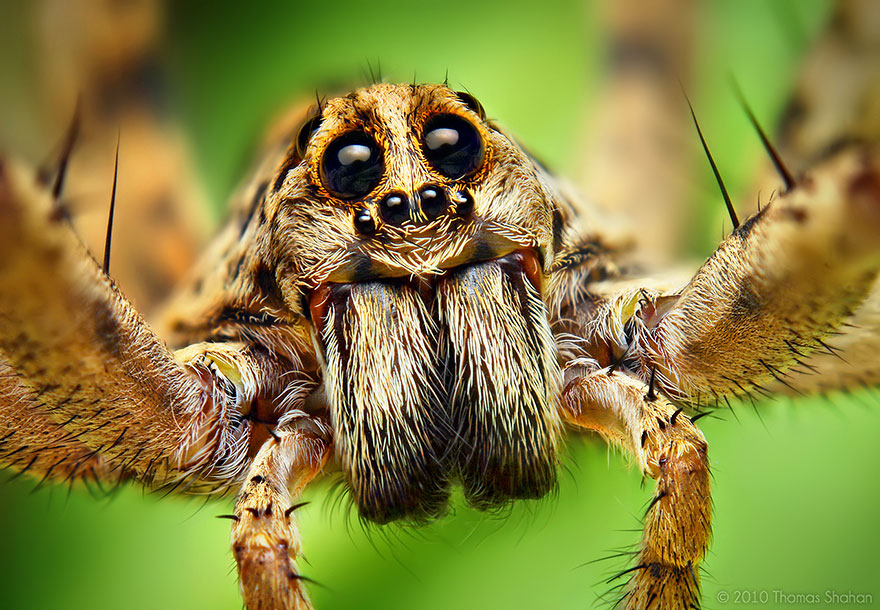
Macro Photos Of Cute And Cuddly Jumping Spiders by Thomas Shahan
The spider's hunting success. In the wild, jumping spiders may go without food for a few days or even up to a week or more, depending on the circumstances. For instance, during colder months or in areas where prey is scarce, they might have difficulty finding food. However, pet jumping spiders should be fed regularly to ensure proper.
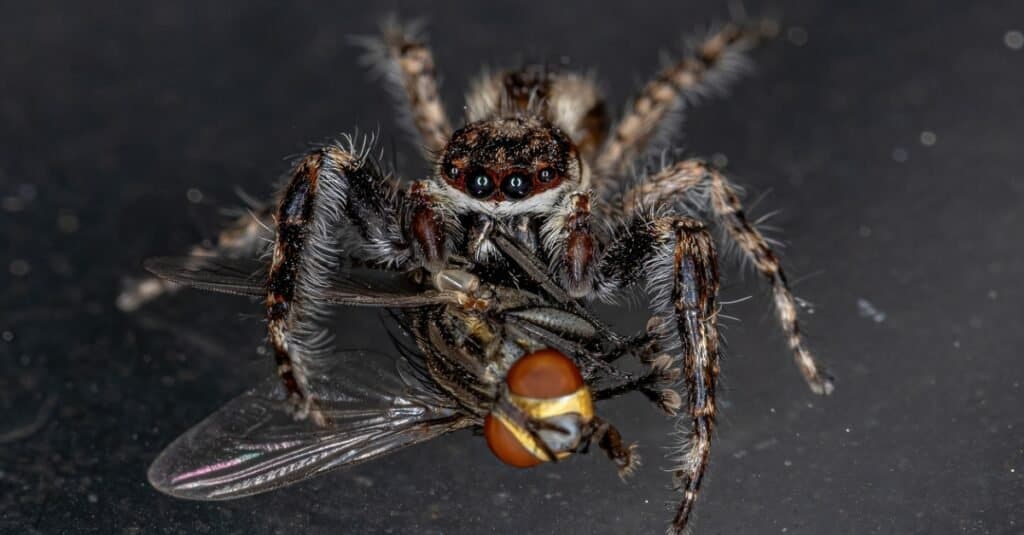
What Do Jumping Spiders Eat? AZ Animals
How Long Can Jumping Spiders Live Without Food Most jumping spiders can live between 1-3 weeks without food as long as they have access to water and are kept under appropriately cool conditions. Younger jumping spiders can survive longer, as little as a couple weeks old they can go without food for 2-3 weeks.

How Spiders Eat The Infinite Spider
While the exact duration can vary depending on several factors, jumping spiders can generally survive for extended periods without food, especially when compared to other animals or insects. Jumping spiders can typically live for about 2-4 weeks without consuming any food.
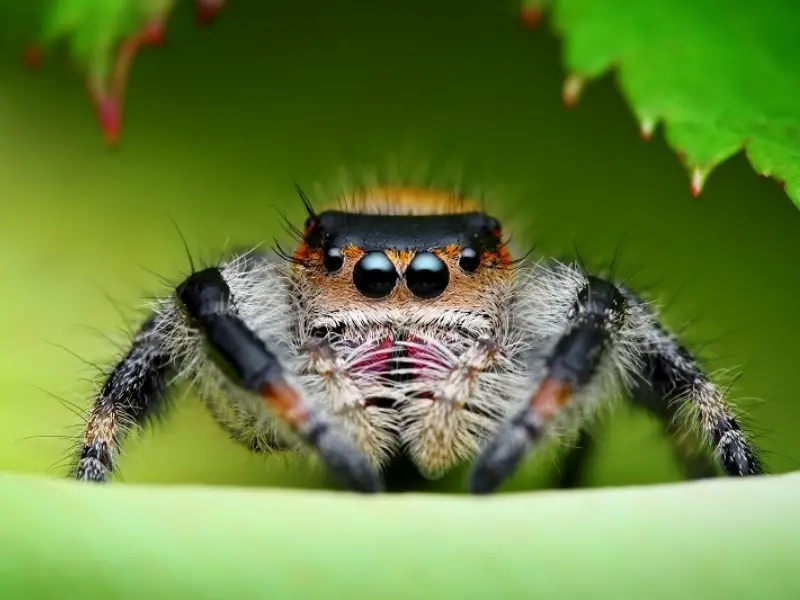
Regal Jumping Spider The Complete Guide Everything Reptiles
How long can a jumping spider go without food? One of my phiddipus regius molted a few days ago and refuses food and has yet to leave her hammock. They haven't eaten for over 11 days. One is still in pre molt and refused food a few days ago, so…. Pretty spooked out tbh.

FileJumping spider nov07.jpg
Diet and Hunting Techniques of Jumping Spiders. Jumping spiders primarily feed on insects and other arthropods. Their diet typically includes flies, mosquitoes, moths, and occasionally other spiders. They are known for their tactical hunting strategies, which involve a combination of stalking and precision jumping.

8 AMAZING jumping spiders types you can get as pets ExoPetGuides
Despite their tiny body size, jumping spiders can leap up to 6.3 inches (160 mm), according to a 2018 paper in the journal Scientific Reports. The spiders often spin a little silk and set a thread.
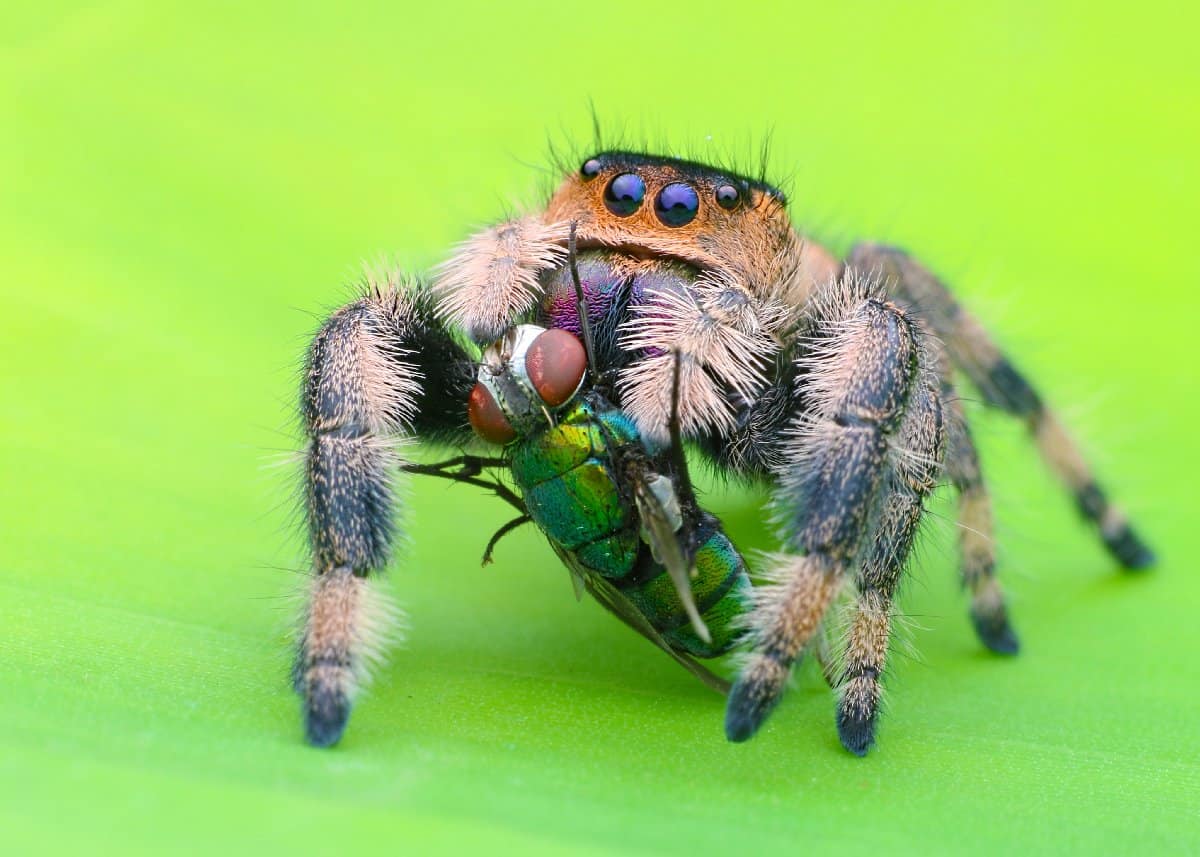
10 Spiders In Virginia AZ Animals
We'd hate for our pal to starve. Well it depends٫ baby jumping spiders need food every 2 days and will last about 5 days without food. adults however should be fed every 4 days and can last about a month. if she hasn't been eating trying locking her in a cage with her food. the cage should be big enough where it can move around but small.
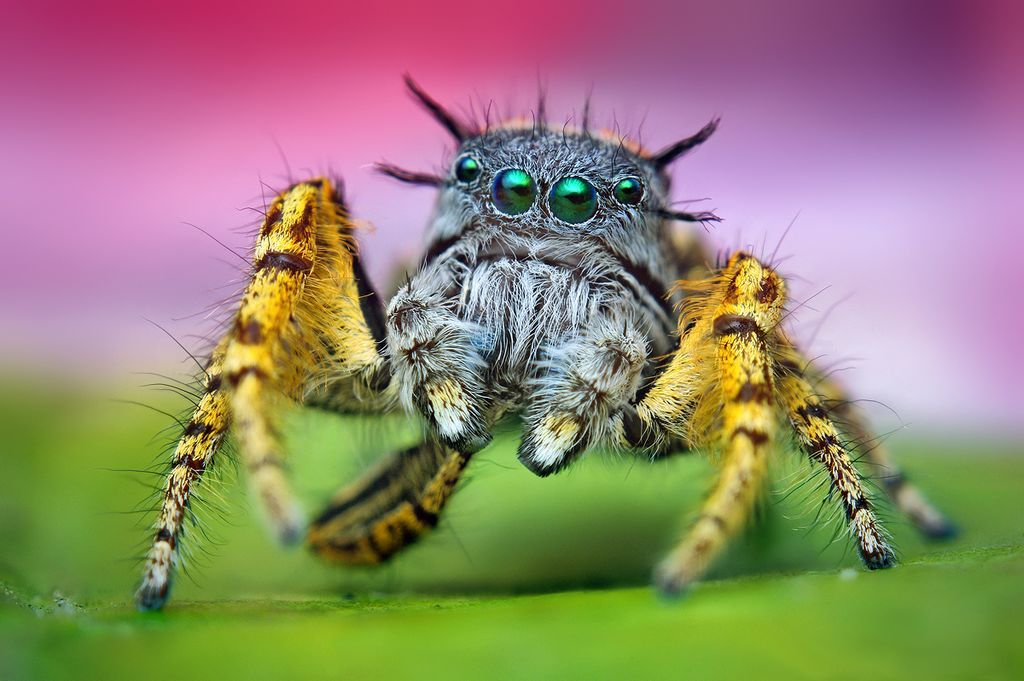
Jumping Spiders Sing and Dance Outside My Window
The diverse diet of jumping spiders. Jumping spiders are opportunistic predators, meaning they will eat whatever prey they come across. Their diet primarily consists of insects such as flies, mosquitoes, moths, and beetles. However, they are also known to feed on other spiders, including smaller jumping spiders. Some species of jumping spiders.

FileJumping Spider.jpg Wikipedia
Yes, jumping spiders can eat wax worms. Wax worms are soft-bodied and small, making them an excellent meal option for jumping spiders. They are also high in fat, which can be beneficial for your spider, especially during or after molting when they need extra energy. However, as with all food items, variety is crucial.